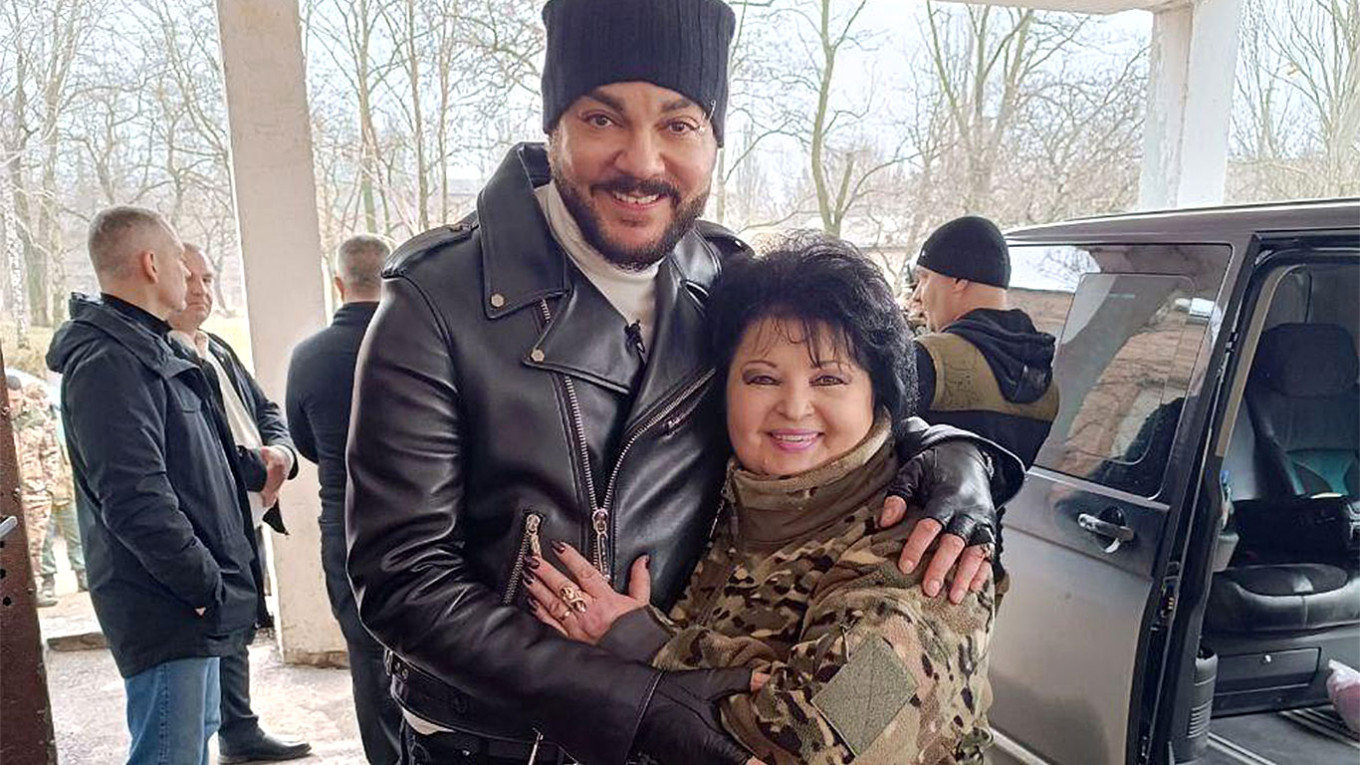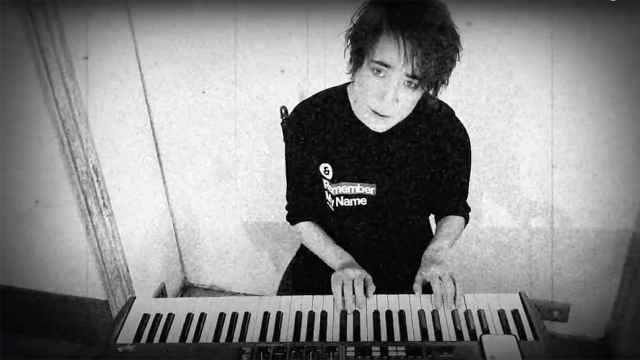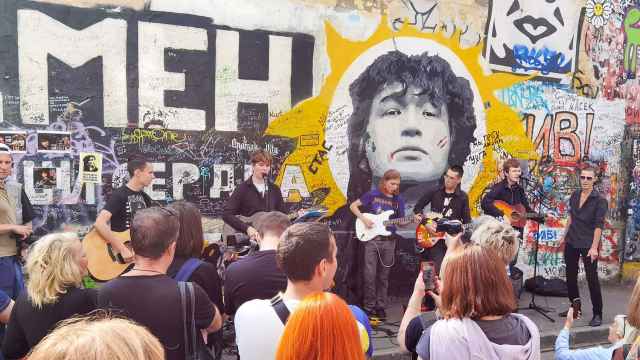Pop star Filipp Kirkorov traveled to occupied Ukraine to perform for Russian soldiers two months after his attendance at a scandalous “nearly naked” party put a dent in his career, media reported Tuesday.
Independent news outlets speculated that Kirkorov made the rare trip as an act of repentance days after his name appeared on a list of 50 artists who were reportedly blacklisted in Russia.
Kirkorov visited wounded soldiers in the Donetsk region city of Horlivka, according to the Ostorozhno Novosti media outlet.
In addition to performing the song "Sneg" (Snow), Kirkorov reportedly brought the soldiers humanitarian assistance and promised to help pay for prosthetic limbs.
“I’m not going anywhere. I live here, have lived here and will continue to live here,” Kirkorov was filmed saying to the audience, indicating he does not plan to move abroad.
“The feeling of support from the rear that you give me is very important to me,” he added.
Video of Kirkorov’s speech and performance was published by several pro-Russian outlets, including the Kremlin-funded broadcaster RT.
In mid-December, Kirkorov and other celebrities sparked a national scandal by attending a star-studded private event dubbed “nearly naked party” at a Moscow nightclub.
Influential pro-war bloggers ridiculed partygoers for flaunting their wealth and debauchery during the war in Ukraine.
A rapper who was filmed wearing nothing but a sock on his genitalia at the event was jailed, and then forced to join the army. The party’s organizer was hit with multimillion-dollar lawsuits for moral damages.
Despite apologizing for his attendance both in a recorded video statement and personally to the Kremlin’s spokesman, Kirkorov’s scenes were cut from several pre-recorded New Year’s Eve programs on state television.
Kirkorov was ranked among Russia’s highest-paid celebrities in 2022 with a net worth of $4.9 million.
A Message from The Moscow Times:
Dear readers,
We are facing unprecedented challenges. Russia's Prosecutor General's Office has designated The Moscow Times as an "undesirable" organization, criminalizing our work and putting our staff at risk of prosecution. This follows our earlier unjust labeling as a "foreign agent."
These actions are direct attempts to silence independent journalism in Russia. The authorities claim our work "discredits the decisions of the Russian leadership." We see things differently: we strive to provide accurate, unbiased reporting on Russia.
We, the journalists of The Moscow Times, refuse to be silenced. But to continue our work, we need your help.
Your support, no matter how small, makes a world of difference. If you can, please support us monthly starting from just $2. It's quick to set up, and every contribution makes a significant impact.
By supporting The Moscow Times, you're defending open, independent journalism in the face of repression. Thank you for standing with us.
Remind me later.






